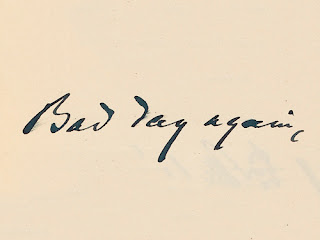Gilbert Garcin was originally the owner of a lamp manufacturing company in Marseille, France. Following a workshop during the Rencontres Internationales in Arles, under the direction of Pascal Dolemieux, Garcin, at the age of 65, gave up his business and began his photographic career. His work has been exhibited and collected around the globe, which satisfies his goal of sharing his ideas on life and his perspective on the world with the public at large. In his photographs, Garcin poses as an ordinary 'Mr. Everybody,' dressed in an old overcoat. By placing himself, via the character he embodies, in absurd and inextricable situations, he invites us to ponder such philosophical quandaries as time, solitude and the weight of existence.
Stephen Bulger Gallery, CNWThis method is both simple and, indeed, economical: after a spot of rumination on humanist notions or basic universal themes that he might wish to act out, he sets himself the daily task of sketching out emblematically resonant situations and taking the corresponding photographs of himself. He then cuts out his figure, and sometimes that of this wife, and places it (them) in a model built using basic materials (glue, string, scissors, ink, paper, photos, etc.) that will fit on a tabletop. He now holds a mini-photography session lit by two approximate garden spotlights in his grandfather’s tiny shed in La Ciotat. Once he has done all this, the selection process is draconian. Only one image will be chosen, and sometimes none, for as Garcin philosophically acknowledges, sometimes an idea doesn’t work. Still, at the rate of ten to fifteen photographs a year he has, over the last decade, built up quite an impressive corpus of over three hundred pictures.Christine Ollier, Gilbert Garcin website
Sauver la nature 2010 [gilbert-garcin.com]
Sortir de l'oubli - To emerge of oblivion 2006 [gilbert-garcin.com]
Changer le monde - Change the world 2001 [gilbert-garcin.com]
ps
Many thanks to Vassiliki for recommending Gilbert Garcin's work.
Many thanks to Vassiliki for recommending Gilbert Garcin's work.



















